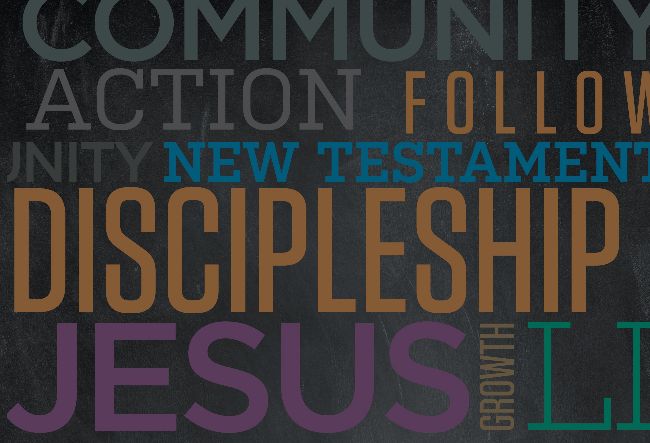Discipleship and me
In the second part of our focus on discipleship, contributors from around the world offer their perspectives on following Jesus.
The Rev Jessie Fubara-Manuel is a second year PhD student at New College in Edinburgh and a minister of the Presbyterian Church of Nigeria.
I WAS born into a Christian home and raised with the fear of God from childhood in Nigeria. But at about the age of 16, when I had just concluded my secondary school (high school) and was preparing for college, I began attending Scripture Union fellowships and enrolled for baptism and membership classes at my local Church. By the grace of God and the leading of the Holy Spirit, I knelt in my bedroom and prayerfully and consciously committed myself to following Jesus Christ as Saviour and Lord. And this, for me, meant commitment to imitating Jesus’ godly lifestyle, pursuing holiness, justice and peace, leading others to Jesus and, together with all fellow believers, prayerfully serving God and God’s world through the community of faith. This was my first conscious entry into the life of discipleship.
Over the years, my life of discipleship has come forth in two distinct ways. The first is an intentional and prayerful studying of the Scriptures in order to know Christ better. The Scriptures provide evidence of the life and ministry of Jesus and the early Christians and, as such, serve as my guide in discipleship. The desire to be knowledgeable about the Scriptures led me to engage in theological education in Nigeria and in the United Kingdom. I have endeavoured to read the Scriptures with a discerning and gendered lens to ensure that its liberating and empowering values are received for all.
The second is a deepened commitment to the community of faith through active participation in the activities and services of a local Church wherever I reside. Through the local Church I bring out my gifts and resources for mutual edification of the believers and the good of the community. In Church, my physical presence may evoke the goodness of God in others as we worship God in songs and dance. We may, then, together pursue justice and peace for our church and community. The implication of this pursuit has been my working with those on the margins of society for their inclusion into the life and worship of the church and for their witness to the world. It also involves mainstreaming the concerns of the margins into society’s strategic responses and interventions. Specifically, it has been collaborating and partnering with persons with disabilities to explore adequate ways of their inclusion into the Church and creating safe spaces for support and empowerment.
In a world of much chaos, conflict, violence and hatred, discipleship is also a commitment to peace where each respects the dignity and humanity of others and of creation. It is a commitment to appreciate and seek godly understanding of all that is ‘diff erent’ such that diversity becomes admirable and peace from God permeates all aspects of life. In my current PhD pursuit, researching the faith lives of women with disabilities and HIV in Nigeria, my discipleship commitment means I engage in a research that is enriching for all research participants and that my faith becomes the chief motivating factor for my work. My decision to follow Christ is a prayerful, spirit-enabled daily endeavour to stay active in Christ, to whom all authority in heaven and on earth belongs. It is also to constantly seek, together with all the saints, to participate daily in God’s working out of the implications of Christ’s authority in the margins, in the economy and in the earth.
The Rev Carola Tron works part-time at a local church in Dolores City, Uruguay and has served as Moderator of the Waldensian Church of the River Plate since 2016.
I have just finished my preaching for next Sunday’s worship when we will have confirmations of Faith. It took me a while to figure out how to preach a meaningful message to seventeenyear- old teenagers?! What is in their horizon of life, of vocations, of interest, of faith? The story came from Luke 18:1-8 the so called “The Parable of the Widow and the Unjust Judge” (NRSV).
If there is a discipleship that is present nowadays in our social Latin American context, it is the discipleship of this widow. Which means not to give up, not to conform with the things the way they are but to struggle for better, for good, and make them good news!
As we were walking together the last steps for Sunday, we remembered that by becoming a Waldensian member they will decide to be part of a very long, very old identity rooted in the value of freedom as the most important concept, that situates us all in the position to have a prophetic voice. A diff erent one from the controlling groups. This identity that helped us to survive for so long, is the identity that shapes our daily faith.

Nowadays, churches are also dealing with many struggles. Many of the struggles are related to a discipleship crisis. But it is not only happening at churches but also in other social organisations. Canclini talked many years ago about societies of consumers or societies of citizens (García Canclini, Nestor Consumidores y ciudadanos, Grijalbo. Mexico. 1995). On one hand, citizens have a strong sense of belonging to a group or to a communitarian experience, on the other hand, consumers only expect to get what they need individually, no matter the cost of it (socially, economically or ecologically).
Nevertheless, there is no way of developing a discipleship into the churches without paying attention to the context, to the social, economical and ecological aspects of life and creation. And there is no way of being church without disciples. The question is: in a society signed by consumerism, are we moving to become churches of consumers? Definitely not. There is no way of being church, being community without engaging in compromise. We are called to be a church of disciples (as a parallel of citizens of a society). Active Christians engaged with the call of Jesus in the midst of religious and political fundamentalisms, in the midst of climate crisis, in the midst of millions of people looking for a place to live, for a piece of land to settle, for a group to belong. Discipleship is a way of resistance, like that widow that knocks so many times at the judge´s door until she gets what she needs, what she has pleaded for her life: justice.
Brazil, Ecuador, Chile, Argentina are current examples of contexts where we are speaking up against exploitation of the Amazon as, of the economy, of human rights. As churches we are called not to remain silent. Not to become consumers but to be widows claiming for justice as a way of praying and resistance.
Finally, coming back to our teens, we shared that confirming the faith of the baptism in the Waldensian church means today to have clear understanding that we are part of that minoritarian old identity that knew how to insist, like the widow did, on the right of freedom for preaching a Gospel of Justice for all. May God help us to celebrate every day this gift of resistance and hope.
Oliver Englehardt is the Evangelical Officer of the Church of the Czech Brethren.
When I was asked to write some words about discipleship from a local perspective, which means, in my case, a view from the Czech Republic, I realised that the word discipleship does not translate easily to other languages. As Christians we have our ideas about the meaning of “discipleship” – being a baptised member of the church may be one of these ideas, following Jesus Christ may be another, living like the first disciples, about whom we read in the Gospels, is a third idea. Each of these ideas carries its own emphasis.
The Czech Republic has a very secular society and this country experienced – probably in some ways similar to Scotland – questions of religious belonging not always being treated as questions of faith and religious conviction, but instead becoming an instrument of political power.
I think that discipleship means to break with the wrong traditions and to follow the truth. According to the Latin origin of the word, being a disciple means to be a student. Being a disciple therefore highlights the role of learning. In learning there are always two sides: a student and a teacher. A thorough study transforms people; it is more than collecting knowledge and understanding relationships or connections. A disciple is a person whose life is changed by a new understanding. By learning, the student moves closer to the master.
As Christians, our master is Jesus Christ and being his disciple today means not only to learn from him, but to build our lives in a way by which we can become more and more similar to him. In Czech Church history, there are several people whose lives show very strong similarities with Jesus Christ. One of them is Master Jan Hus. He called for a break with the wrong traditions in the Church of his times, because he was carefully learning from the gospel and wanted to live according to this. He was burned at the stake for his “heretic” teaching, but the reformation of the church continued. In the 20th century, the Czechs experienced two totalitarian regimes. Milada Horáková, a member of the Evangelical Church of Czech Brethren, had opposed the Nazi occupation, and had been threatened with death before the end of the war. In the end, the Communist regime executed her, following a show trial broadcast on the radio and a propaganda campaign designed to show her as a danger to society, a collaborator with the West. She wrote a final letter to her daughter on the night before her death, explaining why she had acted as she did and encouraging her daughter to work and act for the truth (including the truth about herself).
Discipleship is not only for heroes. In our times of freedom, it seems to be much less demanding. Nobody is risking his or her life. Christians are a minority in the Czech Republic, but it does not need too much courage to confess that you are a part of the church. People from the Evangelical Church of Czech Brethren protest when the Czech government does not want to see the distress of refugees in the south of Europe, or when the government tries to interfere with the independence of the judiciary. Such action, based on faith, is a part of what discipleship means today. But public witness is not the core of the notion. Being a disciple means to be a student. It means not settling for taking action in public or for attending services. It means constantly to learn more and deeper, of what Jesus taught. This is an open-ended process of delving into the Holy Scripture and into the sense of church tradition or history. In our Czech tradition, bible study has a very strong place. Whether private bible study or in groups or in various new forms – discipleship means ongoing learning. And discipleship means to continue becoming closer and more similar to our master.

Photo: Unsplash